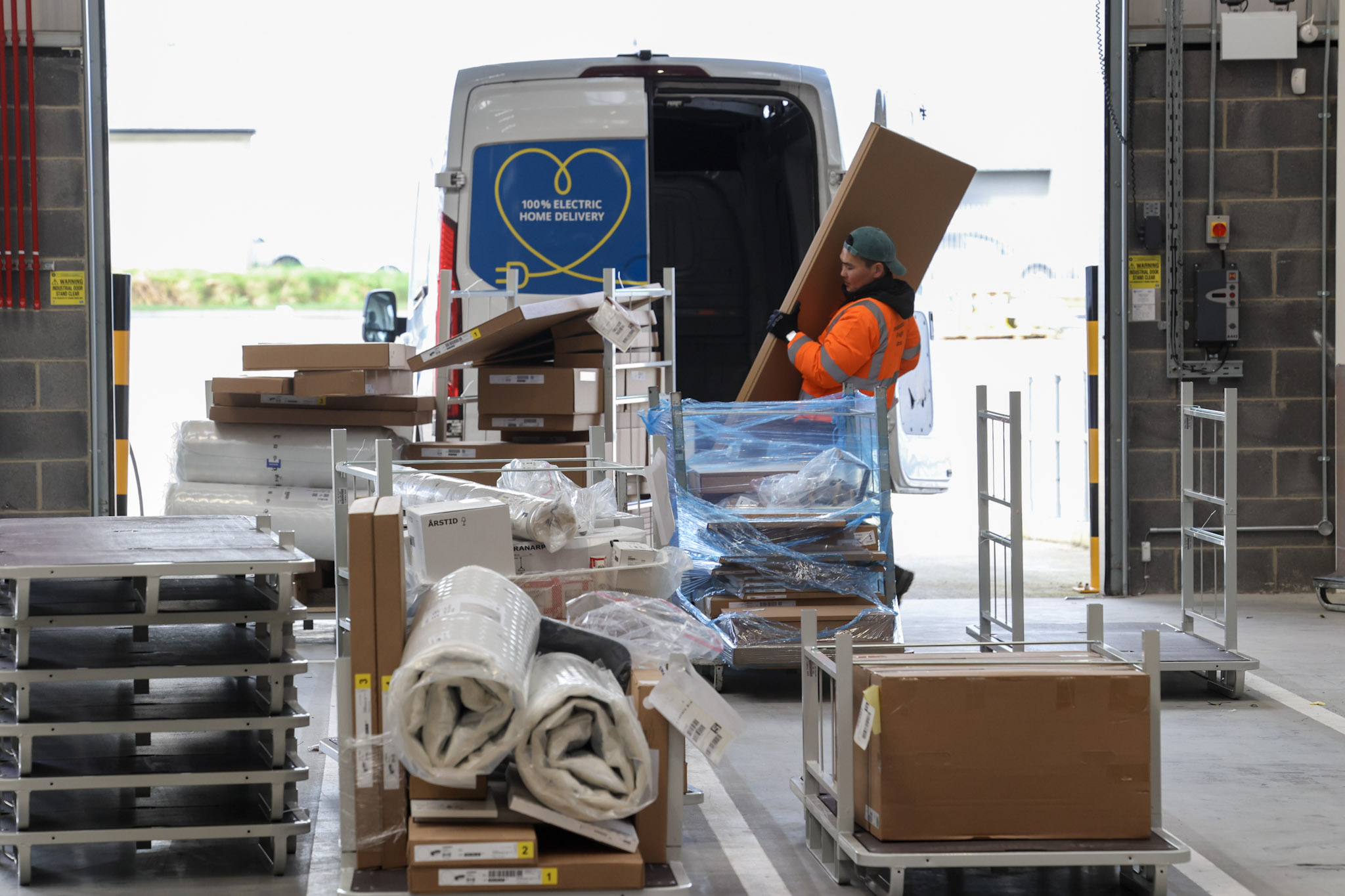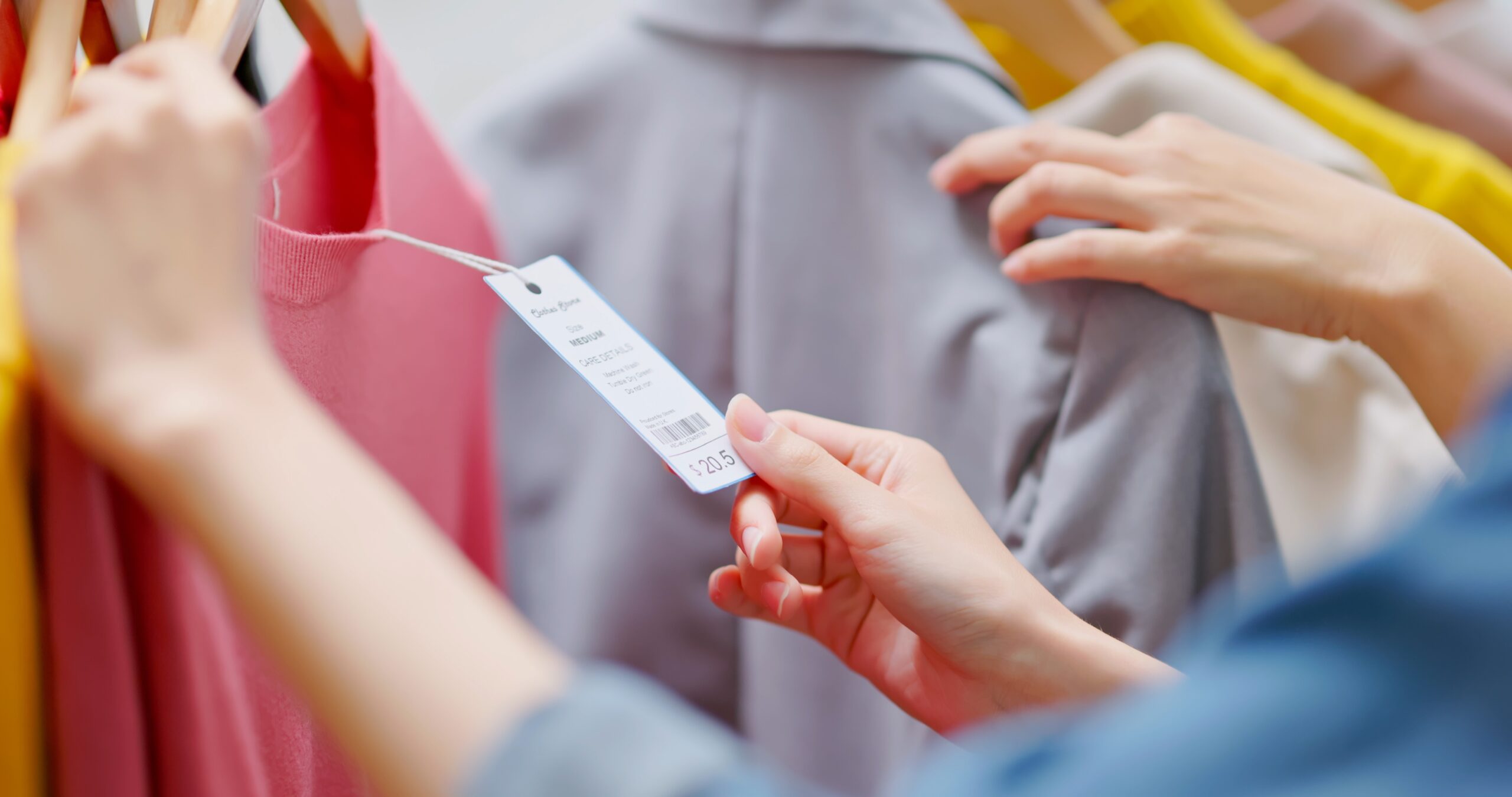Brits are embracing mobile shopping faster than their European counterparts, according to new data out today by e-commerce auction site eBay – which has itself sold £64million of goods through its app since 2009 – and a separate study by the Mobile Marketing Association (MMA). In fact, Brits bought more items through the app in one month than French consumers purchased in the whole of 2009.
Despite the recession, over the last year m-commerce has accounted for nearly £123million worth of goods sold in the UK and this market is predicted to double in the next three years to £275million, says eBay. UK shoppers have been the fastest European nation to adopt the speed and convenience of m-commerce with more goods purchased through the eBay app than anywhere else in the continent.
A separate study carried out by the Mobile Marketing Association and Lightspeed Research similarly finds that the UK currently has the highest number of consumers participating in mobile commerce – 19% doing so in April 2010, followed by 13% of Germans 9% of French – with 18 to 34 year olds the primary drivers of mobile commerce across all three markets surveyed, with 29% of British consumers, 21% of German and 15% of French in this age group making transactions.
Respondents used their mobiles to purchase mobile content, goods and services as well as other digital content; with most agreeing that the transactions were quick and easy. Consumers surveyed across all age groups demonstrated even stronger market interest in mobile transactions in the future, demonstrating clear market opportunities for mobile as a fast and convenient way for consumers to make transactions, says the study.
Across all three countries, the most common form of mobile commerce is the purchase of content for mobile phones, such as ringtones and applications, with 12% of UK, 8% of German and 5% of French respondents making a mobile content purchase in April 2010.
According to eBay, four times as many men have bought goods from eBay via their mobile compared to women and the 26 to 30 age group have adopted mobile shopping most quickly. The most popular items bought in the UK are fashion items (21% of sales), closely followed by technology goods (14.5%) and collectible goods (12.7%).
Globally, more than £408 million worth of goods were sold through the eBay buyer app by the end of 2009, a 200% increase over 2008. eBay’s mobile Gross Merchandise Volume (value of goods sold) is expected to generate £1.02billion in 2010.
The company also claims that 25 per cent of all iPads sold in the first month of sales had the eBay app installed, marking the new device out as one of the hot properties for eBay in the coming years.
The data is revealed as eBay launches its hugely popular buyer app on three new mobile platforms in Europe – Blackberry; Android and iPad, in addition to a dedicated seller app, the next iteration in its suite of smart phone applications, enabling people to buy and sell anytime, anyplace, anywhere.
Last week eBay further cemented its position as global m-commerce leaders through the acquisition of RedLaser, the hottest m-commerce app in the app store. Already incorporated into its new seller app, the RedLaser barcode scanning technology enables users to scan product barcodes with their iPhone camera and then compare prices online to find the best deal.
Clare Gilmartin, MD of eBay UK said: “10 years ago eBay was the first to realise the potential of e-commerce and today eBay is leading the m-commerce revolution. We are constantly innovating to deliver greater choice and flexibility. We have embraced the opportunities of mobile commerce faster and more successfully than our competitors and are now driving the mobile retailing market.
“Last week we announced our acquisition of RedLaser, to improve the buying and selling experience for eBay customers, and our first dedicated seller app, provides eBay sellers with virtually instantaneous access to a global market from their mobile phone.
“People live increasingly busy lives so developing new channels and interoperable platforms which give our customers a better experience and exciting new ways to sell and shop is what eBay is all about and why we continue to be the number one place to shop.”
Malcolm Pinkerton, senior analyst at Verdict Research, adds: “M-commerce revenues are growing at a rapid rate. Shoppers are becoming increasingly sophisticated, already using their mobiles to research products and compare prices when out shopping. There are only a handful of retailers that have properly caught on and are catering for m-commerce shoppers. As consumer affiliation with m-commerce increases, retailers will need to decide if they’re going to be pioneers in the market and meet consumer expectations, or wait and risk being behind the curve as many were with e-commerce.
“If correctly implemented, m-commerce will not only ensure the needs of tomorrow’s shoppers are met today, but also that growth is maximised across all channels. eBay’s success is due to the fact that it has designed the mobile optimized site and in conjunction a smartphone application making the process very easy to use for mobile customers. The approach taken by eBay should be a lesson to other retailers as to the potential of m-commerce”
According to the MMA/Lightspeed study, purchases were not entirely concerned with mobile content or even restricted to products available through operator billing. For example, the purchase of goods and services and collection or redemption of loyalty points (like airline miles) were the second most common form of mobile commerce in France, suggesting a growing opportunity to use mobile for CRM and customer loyalty campaigns.
The mobile web was the medium used most frequently for mobile commerce overall, accounting for roughly half of all transactions. This differed slightly in the case of mobile content, with 52% of UK respondents preferring to purchase mobile content via the web, compared with 49% of Germans preferring messaging (SMS, IM, MMS) and 56% of French respondents preferring to buy via mobile applications.
While most felt transactions were quick and easy, only half of respondents felt they were secure and trustworthy, indicating a need for the industry to educate consumers on the security of mobile payments and address any concerns that may hold back adoption.
“Mobile commerce is beginning to change the mobile retail landscape,” says Dr. Peter A Johnson, VP of Market Intelligence for the MMA. “Rapid adoption of smartphones and use of app stores has provided fertile ground for mobile commerce growth to date and this will only accelerate in the coming years. This research provides a clear indication of how the convenience of mobile commerce is gaining traction. As consumers become increasingly comfortable and confident with paying for goods and services through their mobile it is possible to see m-commerce becoming mainstream or perhaps even the dominant form of transactions.”
“This research provides invaluable insight into consumer attitudes towards mobile commerce that can help marketers understand the opportunities in this exciting new channel,” adds Ralph Risk, Marketing Director, EMEA, Lightspeed Research. “Clearly there is a market for mobile transactions now and in the future, which is not just limited to mobile-related purchases, but for anything that consumers might pay for over the internet or in person.”
The research, which is available free to MMA members and by subscription to non-members, also found that the most popular way for consumers to pay for content on their mobile was to be billed by their mobile operator on their statement. This was the case for 52% of UK respondents, 54% of German and 56% of French respondents.
Digital payment methods such as PayPal appear to be gaining popularity, especially when the transaction does not involve mobile content.
UK residents expressed higher levels of interest in conducting mobile commerce transactions in the future than residents of Germany or France. Across all three countries, respondents believed they were most likely to make mobile commerce transactions over the next 12 months to use discounts or coupons or to collect or redeem loyalty points.









